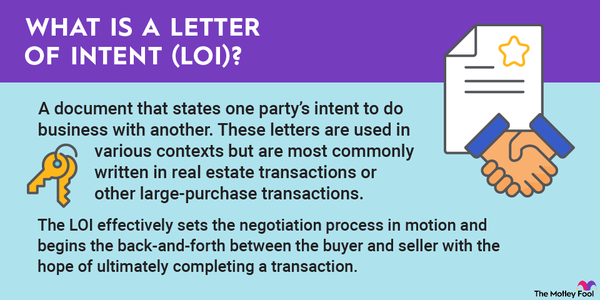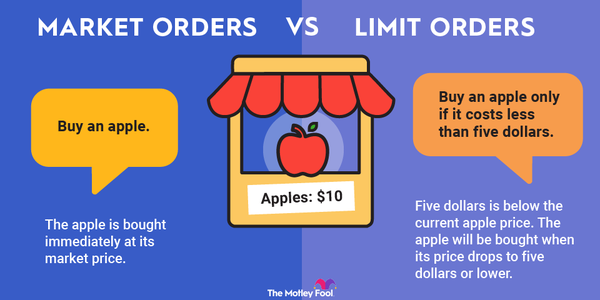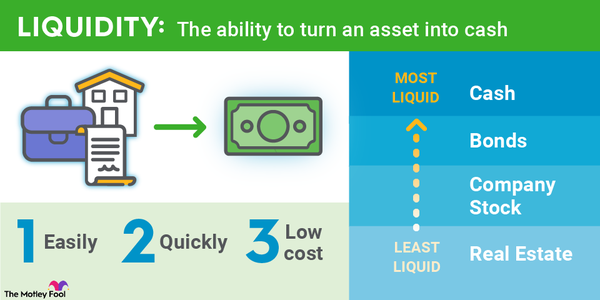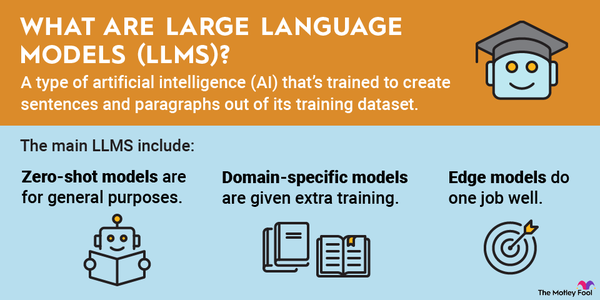For most employees, few words spark more fear than "layoffs."
Common during recessions and other times of trouble, layoffs describe mass employment terminations at individual companies.
For example, in 2023, layoffs were common as big tech companies like Meta Platforms (META 4.23%), Amazon (AMZN 1.52%), Alphabet (GOOG 2.5%)(GOOGL 2.65%), and Microsoft (MSFT 1.06%) all let go of thousands of employees in an effort to cut costs after the pandemic boom in the tech sector faded.
With a challenging macroeconomic environment in other sectors like entertainment, layoffs have also affected other parts of the economy.

What are layoffs?
What are layoffs, exactly?
Layoffs are a shorthand term to refer to corporate job terminations. They are typically mass firings, cutting hundreds or thousands of jobs and, unlike individual firings or terminations, done with little regard for an individual employee's performance. Companies need to cut costs, and layoffs are often the easiest way to do so.
Corporations will refer to layoffs as employment terminations, separations, workforce reductions, or even job cuts, but those terms all mean the same thing.
It means that employees are losing their jobs, and companies are cutting them, typically because the business is underperforming and it needs to shift its strategy in a new direction.
Why do they happen?
Why do companies lay people off?
There are a lot of reasons why a company might choose to issue layoffs.
Often, it's because either the economy or an industry is weak or because the business is struggling.
For example, layoffs in the real estate industry were common during the housing crash from 2008-12 and, more recently, as housing prices pulled back and activity slowed following the boom during the COVID-19 pandemic.
At times, a business might issue layoffs in a department that is no longer strategically relevant or one that has become too bloated after management hired too aggressively. An auto manufacturer might choose to issue layoffs if it scraps a particular vehicle model.
Disney (DIS -0.1%), for example, laid off 7,000 people in 2023, mostly in its media divisions, a reflection of its attempts to make its streaming unit profitable and control costs at its legacy media businesses where revenue was declining.
Good management teams generally take pains to avoid layoffs. In addition to the impact on employees who have been terminated, the decision often hurts morale among existing employees and can drive away prospective employees, as well.
While the decision to lay off employees might be the correct one for the long-term health of the company, it is almost never made lightly due to the impact on the lives of the employees who lose their jobs.
Are they good for investors?
Are layoffs good for investors?
If you haven't previously observed the impact of layoffs on an individual company's stock, you might be surprised to learn that the outcome is typically counterintuitive.
Often, when a company announces layoffs, the stock goes up rather than down. That's because Wall Street generally interprets the news as good for investors because layoffs equal cost cuts, which help boost profits.
However, it's risky to interpret layoffs as a bullish signal for a stock, especially because layoffs occur for a variety of reasons. Although they might reflect a smart decision to improve profits at one company, they could be more representative of a business in decline at another company, in which case the news should be a signal to avoid a stock.
For example, a number of cryptocurrency companies, including Coinbase (COIN 6.32%), issued layoffs in 2022 and 2023 as cryptocurrency prices fell, and interest in trading digital currencies plunged. However, a recovery in crypto prices in 2024 lifted Coinbase stock.
Many of the tech companies that issued layoffs in 2022-24 did so from a position of strength, padding already wide profit margins in response to investor comments that their payrolls have become too bloated.
Related investing topics
One recent example of layoffs
One recent example of layoffs
Among the tech companies that have announced layoffs is Alphabet, the parent of Google.
In January 2023, the company reported it was laying off 12,000 employees. The move came after some of its closest competitors, like Meta Platforms and Microsoft, announced similar layoffs and also followed calls from activist investor TCI Fund Management to cut headcount and salary. The news also came after the launch of ChatGPT, signaling a new race in artificial intelligence.
In a blog post announcing the move, CEO Sundar Pichai said the company "hired for a different economic reality than the one we face today," an acknowledgment that growth had slowed down and that AI was becoming preeminent.
Pichai also said the company was focused on ensuring its "people and roles are aligned with our highest priorities as a company. The roles we're eliminating reflect the outcome of that review."
In other words, the layoffs reflected a shift in strategy to focus on AI.
That shows that it's important to go beneath the surface to find the motive behind the layoffs because they are often specific to each case.
Frequently Asked Questions: Layoffs
What does "layoff" mean in work?
A layoff refers to a job cut. It's the process of a company cutting jobs en masse. A layoff could be dozens of job losses or tens of thousands, depending on the size of the company and the economic challenges it's facing.
What happens if you are laid off?
Layoffs are often communicated through email or a Zoom meeting. If you are laid off, most companies will give you some kind of severance package, which typically includes several weeks' or months' worth of salary, and benefits like health insurance.
Severance is intended to help those laid off bridge the gap between jobs, and it helps the company's own reputation by making it look like a responsible employer.
Why do companies lay off employees?
Companies typically lay off employees because they need to save money. That could be because they're facing sales declines, a recession, increasing competition, or investors demanding more profit.










































